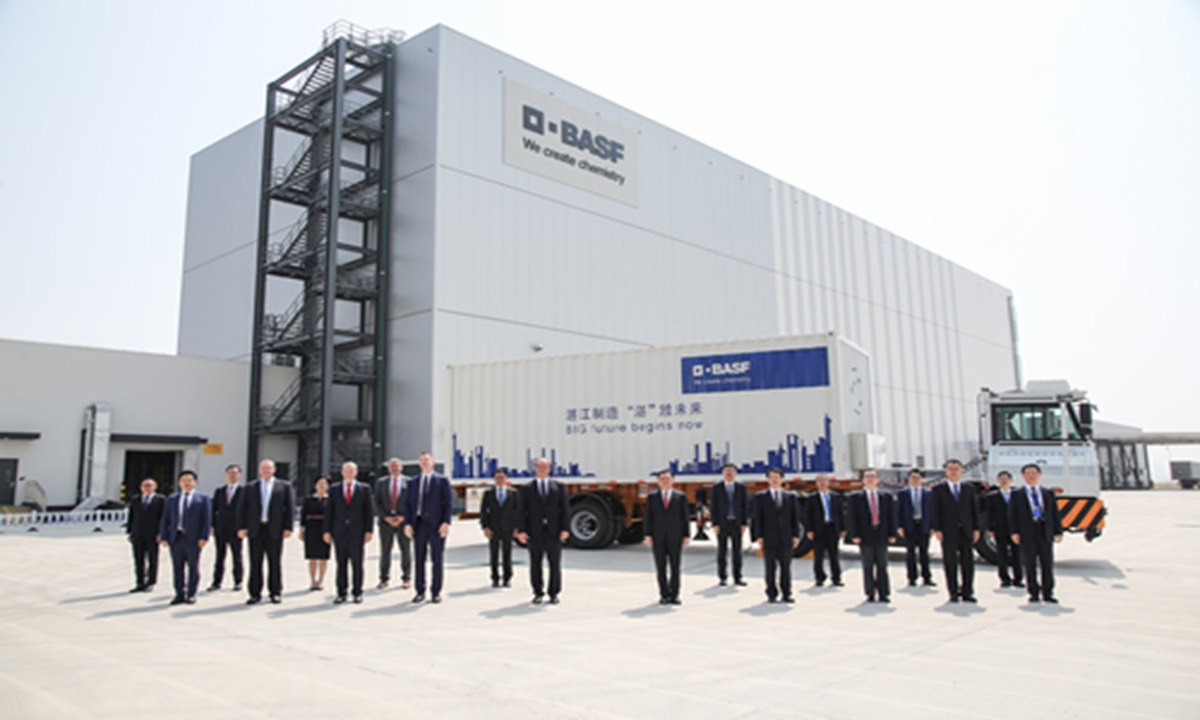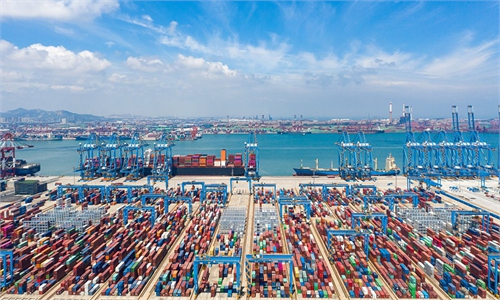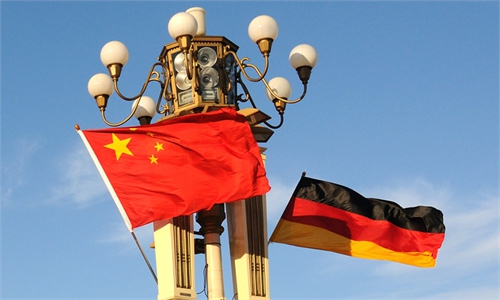
The group photo taken in front of the BASF Zhanjiang Verbund site Automated Smart Warehouse on September 6, 2022 in Zhanjiang, South China's Guangdong Province. Photo: Courtesy of BASF
German Chancellor Olaf Scholz is scheduled to visit China later this week, with a delegation of senior business leaders, including the chief executive officers of BASF SE, Bayer AG, BMW AG, pharmaceuticals group Merck KGaA and Wacker Chemie AG, among others, according to German media reports.It would be the largest trade delegation visiting China since the start of the COVID-19 pandemic. The enthusiasm expressed by German companies in the China visit is a testament not only to the high expectations of the German business community that Scholz's China visit could further promote pragmatic cooperation between the two countries, but also to the appeal of the Chinese economy.
Most importantly, at a time when some forces in Germany have been inciting domestic businesses to "decouple" from China so as to reduce the country's so-called "economic dependence" on China, the trade delegation is a clear indication of the desire of the German business community to deepen economic ties with the Chinese market, instead of "decoupling" from it.
Germany is one of China's most important trading partners, while China is Germany's largest trading partner, which constitutes the foundation for the two countries' mutually beneficial economic and trade ties. In 2021, bilateral trade between China and Germany reached 245.3 billion euros, accounting for 30 percent of total trade between China and the EU.
Moreover, with the deteriorating energy crisis in Europe, it is necessary for German companies, already facing greater pressure at home, to seek more opportunities by expanding their China businesses. It is conceivable that the pragmatism showed by German businesses will likely be rewarded handsomely in the Chinese market.
There is every reason to be confident about China's economic prospects and the continuity of its opening-up policy. The Chinese economy is recovering steadily by unleashing vitality and resilience, and the Chinese government is committed to promoting high-quality development through high-level opening-up.
Last week, the National Development and Reform Commission, China's top economic planner, issued a series of measures to facilitate foreign investment, especially in the manufacturing sector. The measures urged localities to fully use existing fast-track travel channel and called for more streamlined rules for international travel for foreign executives, management, key personnel and their relatives.
If anything, the development sends a clear signal that after the 20th National Congress of the Communist Party of China, China has sped up promoting foreign investment cooperation and will continue to work on relevant policies. In the meantime, foreign investors need to understand the necessity of some measures as regards to epidemic prevention and control.
It needs to be pointed out that China's fundamental policy of attracting foreign investment to promote cooperation has not changed and the country is always against "decoupling." This is because China's economic development has the need for continuous opening-up and more foreign investment as part of its growth momentum. Meanwhile, in the face of the US' containment strategy, it is also important for China to break the US-led "decoupling" push with an open spirit. Broader opening-up and cooperation with the rest of the world will prove that the US strategy won't work.
The sooner foreign investors correctly understand China's commitment to opening-up, the sooner and the more they will be able to share the dividends of China's economic development.
Sound and stable economic and trade cooperation is based on reciprocity. Therefore, the Chinese market will favor those who are willing to pursue pragmatic cooperation, rather than those who want to "decouple" from China, while profiting from the Chinese market.
The investments made by German companies in China this year and their support for Scholz's China visit show the confidence of the German business community in China. Such pragmatic approach will surely bring them more dividends of China's development, which will help them get a head start in competition with other foreign investors in China. In comparison, those who claim China would close up and start to "decouple" from it will certainly regret doing so in the future.



